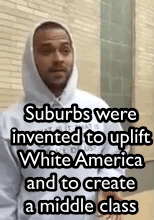
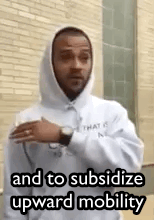
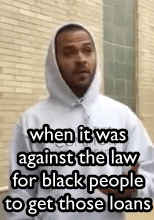
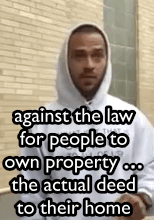
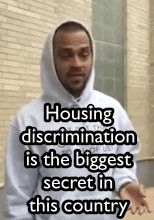
(hat tip to Feminist Batwoman)
When victims of sexual assault or rape share the story of their trauma, there are several depressingly common responses.
What were you wearing?
Why were you out alone?
Did you lead your attacker on?
Why were you drinking if you didn’t want to be assaulted?
Why were you hanging out with “those people” (c.f. people who blame women for going to frat parties and being raped)?
Those responses all blame the victim. They place some, most, or all responsibility for the sexual assault or rape on the victim, as if they had some measure of control over what happened to them. They don’t. They never do, because they aren’t the one committing the sexual assault or rape. The only person with the power to prevent a rape or sexual assault is the perpetrator. By not committing the act, no rape or sexual assault will occur. People have been the victims of sexual assault or rape no matter how much or how little they wear, no matter how much or how little they drink, in the presence (or absence) of friends or family, and in a variety of social situations (ranging from work environments to frat parties).
African-Americans and their progressive allies have received similar victim blaming responses as they continue to protest against a racist criminal justice system.
Eric Garner shouldn’t have resisted arrest.
Michael Brown should have listened to Darren Wilson and gotten off the street (or as some like to argue, “he shouldn’t have shoplifted”)
Tamir Rice’s father and mother had violent pasts.
All of these responses attempt to shift the responsibility for the deaths of the victim onto their hands. Eric Garner would still be alive if Daniel Pantaleo hadn’t placed him in a chokehold. Michael Brown would still be alive if Darren Wilson hadn’t shot and killed him. Tamir Rice would still be alive if Timothy Loehmann hadn’t begun firing at the 12-year-old seconds after exiting the police car. Some might say that these examples are different from victim blaming the survivors of sexual assault and rape. But here’s the thing: in both cases, the victim is treated as having some degree of responsibility for what happened to them. The victims of sexual assault and rape are held responsible for their victimization. The actions of People of Color (or their family members) who have lost their lives to law enforcement officials are used as justification for their extrajudicial executions (can someone honestly tell me they think the punishment for shoplifting-for the sake of argument, I’m conceding this point-should be death…that expressing your frustration at being racially profiled by the NYPD should be cause for death by chokehold…that the actions of a 12-year-old boy’s parents somehow justifies the execution of that child?)
An article at .Mic highlights a Tweet by Stephen Dacres that perfectly sums all the above up, with an additional piece of insight:
"*black man is shot* was his own fault
*girl is raped* she was asking for it
*white boy shoots up a school* he's disturbed & needs help"
— Stephen Dacres (@SRDtv) November 25, 2014
The message gets to the heart of things. It encapsulates many of the frustrations faced by minority groups: victim blaming, a lack of institutional accountability, power imbalances. It also speaks volumes about the empathy our society is willing to grant people when they fall into the category of “white male.” When people who don’t fit into that box are the focus — even if they’re the victims — they fall by the wayside.
Brown’s death isn’t the only example of this. In the past couple of weeks Akai Gurley, 28, was shot and killed by police while walking down a dark stairwell with his girlfriend. Tamir Rice, 12, was killed by a first-year police officer in Cleveland because he had an airsoft gun in his hands. And the Rolling Stone detailed Wednesday, among other things, the failure of a university to punish an alleged gang rape of one of its own.
Go back even further and similar instances pile up. Yet there are still those out there who believe white privilege doesn’t exist, or that black Americans are pulling the race card or that a woman who is raped somehow deserved it.
And yet when incidents like Sandy Hook and the Aurora, Colorado, movie theater shooting occur, the discussions tend to revolve around mental health: Why did this happen? How can we prevent it? How did we fail these people?
That’s not to say these questions don’t have a place; we can and must continue to work harder to prevent these situations before they happen. But when we’re not asking the same things when women and people of color are concerned — and instead try to find any way possible way to place the blame on them — that’s a problem.
If there’s anything to be taken from the event of the past few weeks, it’s this: Privilege is one hell of a drug.
The horrible lesson of the realities of white male privilege? When People of Color are the victims of police brutality, they did something wrong. The victims of sexual assault and rape acted in a manner that caused them to be victimized. Both groups receive blame, derision, contempt, or character assassination. From many people, they get no empathy or compassion.
But the white male who causes violence or commits sexual assault? He can be the victimizer, and still get compassion and empathy (for another example: the Steubenville rapists, got a lot of compassion and sympathy as if they were the victims, while the actual victim got a fuckton of victim blaming).
I wonder why white men are treated differently? (That’s a rhetorical question, btw)
When you hear those words from a police officer, you can be fairly certain they are not talking about a black person. After all, we’re thugs, brutes, and demons (honestly, just ask Darren Wilson). Oh, and we’re violent. But white people? Ya’ll are treated differently:
On Sunday, inside the Miami Beach Convention Center, police said Sherrard joined about 30 people protesting the wealthy. They say he tried fighting off officers who were herding him out of the building, then reached his right hand into his pants and pulled out something unexpected.
“The unknown item was discovered to be a prosthetic penis sex toy,” wrote Miami Beach Police Officer Alex Delgado. “The item was impounded.”
Sherrard, an activist who also happens to be a well-known New York City street performer, was arrested, charged with disturbing the peace and resisting an officer without violence.
Beach police, it seems, didn’t appreciate his particular act. In an interview with The Herald on Monday, he said officers apparently mistook “a prosthetic packing penis for a handgun.”
Wonder why the cops didn’t fear for their lives upon thinking he had a gun…oh wait. I know the answer to this!
White privilege–granting white people the benefit of the doubt in encounters with the police.

This is something so many white people (and some people of other races, including a few African-Americans) don’t understand. They don’t see the day-to-day realities for black Americans. Sure they might see an isolated incident, but they don’t see the ongoing microaggressions…the daily indignities that blacks experience. They see things on an individual and isolated level, rather than the aggregate. When you try to point it out to many of them and connect these events to a larger pattern of systemic racism, they try to justify the mistreatment or the racial profiling or the extrajudicial killing. As if there is something that justifies how we’re treated. Some reason that Tamir Rice, Oscar Grant, Eric Garner, Darrien Hunt, Michael Brown, Trayvon Martin, and Rumain Brisbon had their lives snuffed out. Some justification for why blacks (and hispanics) are stopped and frisked more often than white people. Why is it so hard for white Americans to believe the lived experiences of black Americans? Why do we have to try so much harder to get people to listen to and believe our stories?
Oh wait. I know the answer to that. It starts with “Black lives” and ends with “don’t matter”.
Are you a white person?
Have you committed a crime?
Did you get away with it?
Do you feel guilty about it?
If your answer to all four questions is ‘YES’, then hurry thee to #CrimingWhileWhite, the new hashtag that gives white people a platform to confess their unpunished crimes (it also showcases two different America’s–the one black people live in and the one white people live in). Did you sign off on a war that killed thousands of people? Were you a victim of ‘affluenza’ who drove drunk and killed several people, only to get a slap on the wrist? Did you engage in civil unrest after your favorite sports team won (or lost) a game? Then this hashtag is for you! Just check out the company you’ll be keeping when you confess your sins:
Blacks & whites use pot at = rate. Yet blacks are 2.3x more likely to be arrested for pot in TX http://t.co/31wPQ4fkKv #Crimingwhilewhite
— ACLU of Texas (@ACLUTx) December 4, 2014
"One time my buddies wanted more oil $, so I pretended there were WMDs in Iraq & oversaw the murder of 150,000 ppl"-Bush #CrimingWhileWhite
— George Joseph (@georgejoseph94) December 4, 2014
https://twitter.com/AviKorbman/status/540574588024135681
https://twitter.com/ozchrisrock/status/540529550078529537
#CrimingWhileWhite is writing a book about your criminal activity and it being made into a show with multiple seasons on Netflix.
— Akilah Hughes (@AkilahObviously) December 4, 2014
https://twitter.com/tomtomorrow/status/540511930939867137
REMINDER: Not arrested or tear-gassed while armed, obstructing traffic and inciting violence #CrimingWhileWhite pic.twitter.com/q2dfNZRQmX
— The Baxter Bean (@TheBaxterBean) December 4, 2014
#CrimingWhileWhite no one got arrested pic.twitter.com/7k4dFyE9oK
— Atlnightspots.com (@AtlNightSpots) December 4, 2014
Up next: #AliveWhileBlack
Ugh. I can’t even…
But I’m going to try.
I’ll be frank. When I first heard of this project, sight unseen, I imagined it was a series of vignettes detailing how the lives of individual white Americans was difficult, and using this to claim that white America had it just as bad as African-Americans or Hispanic-Americans. I thought it was going to be some of the worst racist dreck ever produced; dreck that ignored how the deck is stacked against People of Color (PoC)and always has been. I figured it was going to ignore the fact that this country was built for and benefits white people. I thought they’d ignore that the political, economic, social, and religious power in this country is overwhelmingly in the hands of white people. I thought it was going to make the case that the struggles of PoC is their fault, rather than the fact that the playing field has never been level.
Was my first impression correct?
The brainchild of Whitney Dow, (who, along with Marco Williams, created Two Tone Productions, which focuses on race and in their words, “any subject matter that allows us to investigate what it means to be human), the Whiteness Project is intended as an exploration of how white Americans perceive their ethnicity. The first installment of the ongoing project is a collection of 24 interviews of white people in Buffalo, NY in July 2014.
Having listened to 5 of the 24 videos, I learned that John, who used to be in prison, never really paid much attention to his race, until he was forced to side with either Hispanic-Americans or African-Americans while in prison. Only then did he become aware of his ethnicity. He sided with the Hispanic group in prison, feeling as if he had nothing in common with the black population.
From Kathie, I learned that she’s a person who “doesn’t see race”. She feels that she got where she did because of who she is. It’s clear that she has no concept of white privilege. Worse, she’s never had any reason to stop and think about her ethnicity and how it has allowed her to navigate through life with greater ease than other ethnic people.
Ken considers himself ‘White, Native American’, but seems to focus more on his Indian heritage rather than his white heritage. I’d be interested to see if he identifies with his Indian heritage for personal reasons, or if he identifies as Indian to honor his grandfather (which is implied in the interview). He makes very little mention of being white.
Andrea sports visible tattoos and dyes her hair. As a result, she feels that she experiences as much discrimination as a black person. In fact, she says if she went out with a minority person, she’d get as many stares and be subjected to the same treatment as black people.
Chris points out the lack of diversity in Buffalo. He mentions that he’s never really felt conscious of his race, but he wishes he felt a connection to his ethnicity…a feeling of being a ‘part’ of something. Of the 5 interviews I listened to, he recognizes the importance of diversity and of interacting with people outside of your ethnic group. Even still, he doesn’t appear to demonstrate knowledge of how his race benefits him.
There are of course, 19 more interviews to listen to, but one thing I was struck by is that it doesn’t feel like an interview. Sure the speakers are [probably] asked questions, but we’re not privy to any of that. As a result it feels one-sided. It feels like this is what these people genuinely think about their race. It’s interesting bc they don’t really have an idea of being white. That’s at the heart of white privilege. It’s being “normal”. It’s having your race normalized to such a point that it’s invisible. Contrast that with African-Americans or Hispanic-Americans, who routinely are made aware of their race. Given the history of both groups in this country, and how they have long been oppressed-precisely bc of their race-it makes sense that their ethnic identity would be something they are very much aware of.
I asked earlier if my first impressions were correct. I’d say YES and NO. For the individuals interviewed, their privilege makes them blind to the ways that their race impacts their lives, They literally don’t have to think about their race. It’s not an issue to them. It’s not something that’s their fault, and it’s nothing they should feel guilty of. However, if this country is going to have an open, honest discussion about race, white people need to become aware of their privilege. That’s the only way they’ll be in a position to help tear down the institutional barriers that prevent true equality for Blacks and Hispanics. Several of my initial impressions were correct, but that’s more to do with the interviewees, rather than the interviewer. What does Whitney Dow have to say about his project? Could that change my perspective on this work?
Short answer: Yes.
While many media projects have investigated the history, culture, and experiences of various American ethnic minorities, there has been much less examination of how white Americans think about and experience their whiteness and how white culture shapes our society. Most people take for granted that there is a “white” race in America, but rarely is the concept of whiteness itself investigated. What does it mean to be a “white”? Can it be genetically defined? Is it a cultural construct? A state of mind? How does one come to be deemed “white” in America and what privileges does being perceived as white bestow? The Whiteness Project is a multi-platform media project that examines both the concept of whiteness itself and how those who identify as “white” process their ethnic identity. The project’s goal is to engender debate about the role of whiteness in American society and encourage white Americans to become fully vested participants in the ongoing debate about the role of race in American society.
After almost two decades of making films with my black producing partner, Marco Williams, I have come to believe that most whites see themselves as outside the American racial paradigm and their race as a passive attribute. Subsequently, they feel that they do not have the same right to speak about race as non-whites. The Whiteness Project hopes to bring everyday white Americans, especially those who would not normally engage in a project about race, into the racial discussion—to help them understand the active role their race plays in every facet of their lives, to remove some of the confusion and guilt that many white people feel around the subject of race and to help white Americans learn to own their whiteness—and everything positive and negative it represents—in the same way that every other ethnicity owns its ethnic identity.
I recognize that the idea of whiteness, or white privilege, is an uncomfortable one. The term “white privilege” itself feels pejorative and like something whose very recognition demands an admission of some kind of guilt. As a white person, I reject this. I have found that honestly examining the role my ethnicity plays in my day-to-day life, and, in fact, how it has shaped my life’s entire arc, has been incredibly enriching and enhanced the quality of all my relationships, regardless of the ethnic make-up of those involved.
America, despite its history (or perhaps because of it), has been a leader in confronting issues of race. While deep racial fissures do exist in American society—as evidenced by recent events in Ferguson, Missouri, and in reactions to the shooting of Trayvon Martin and to affirmative action court rulings—it is hard to imagine any other white-majority country embracing and celebrating the wide range of ethnicities and cultures that make up the nation and electing a biracial president to govern them all. I believe that the country is not just ready for a discussion on whiteness, but is hungry for it. My experiences working on this project have repeatedly shown me that when white people honestly engage on this topic, it is incredibly freeing for everyone, regardless of ethnicity, and makes discussions about race more productive, ultimately helping to advance a culture of true equality.